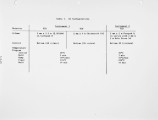| Title |
The Incineration Characteristics of DichloromethaneThe Incineration Characteristics of Dichloromethane (CH2Cl2) |
| Creator |
Cundy, V. A.; Senser, D. W. |
| Publisher |
University of Utah |
| Date |
1984 |
| Spatial Coverage |
presented at Tulsa, Oklahoma |
| Abstract |
This paper presents experimental results of CH2Cl2/CH4/air flat flame experiments conducted recently. The paper details problems encountered when studying these nonconventional compounds and steps that were taken to overcome these difficulties. Results are provided in terms of species and temperature profiles obtained through the flat flames. Intermediate species are defined with emphasis placed on the possibility of these compounds appearing as PICs in poorly operated incinerators. |
| Type |
Text |
| Format |
application/pdf |
| Language |
eng |
| Rights |
This material may be protected by copyright. Permission required for use in any form. For further information please contact the American Flame Research Committee. |
| Conversion Specifications |
Original scanned with Canon EOS-1Ds Mark II, 16.7 megapixel digital camera and saved as 400 ppi uncompressed TIFF, 16 bit depth. |
| Scanning Technician |
Cliodhna Davis |
| ARK |
ark:/87278/s61c20dr |
| Setname |
uu_afrc |
| ID |
1819 |
| Reference URL |
https://collections.lib.utah.edu/ark:/87278/s61c20dr |





















